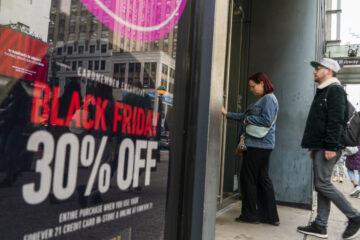One of the more confounding facts about retail – particularly the brick and mortar piece of the industry – is that store closures can actually be a good thing.
At least for investors.
Related: Costco makes major change customers will notice right away
Closing underperforming locations to shore up profits, mitigate an issue, or fold up misguided ventures can actually be a very healthy indication that management is paying attention and knows when to simply throw in the towel.
Of course, this is not always the case.
We’ve seen plenty of store closures, particularly across metropolitan and suburban America, that indicate a bigger issue. Macy’s (M) indicated earlier this year that it plans to close about 150 stores thanks to declining foot traffic and interest in indoor shopping malls.
Budget retailers Dollar Tree and Family Dollar (DLTR) announced they would shutter approximately 1,000 locations in 2024 among deteriorating economic conditions.
Even pricier shops, like the upscale bakery Foxtrot which is popular in cities like Washington, D.C., and Chicago, are shuttering entirely; many consumers just don’t have the same appetite for the $35 grab and go lunch that they used to. The deli hotspot, which was popular during the pandemic for its convenience, abruptly shut all locations in the spring.
A Walmart employee restocking bananas.
Jeff Greenberg/Getty Images
Retail is a shifting landscape
And the stores that aren’t closing are finding other challenges in staying open. Drugstores, particularly in high foot traffic areas, are increasingly locking up merchandise behind closed plexiglass doors to prevent theft.
A photograph of a Washington, D.C., based CVS shows even the simplest items, like toilet paper, isn’t even displayed on shelves anymore. Customers are instead asked to ring a bell to ask for assistance in retrieving their preferred brand, based on a variety of framed photos of available brands.
View the original article to see embedded media.
It’s not limited to pharmacies like CVS and Walgreens. Most convenience stores, big box retailers, and even sporting goods stores have commented on the increase of theft in stores and its affect on profit margin.
Related: TJ Maxx and Marshalls closing permanently in these major cities (here’s why)
Target (TGT) CEO Brian Cornell explained on the retail giant’s Aug. 19 Q2 earnings call that the chain is grappling with “an unacceptable amount of retail theft and organized retail crime.”
Walmart closing more stores
It would seem that no retailer – big or small, upscale or budget friendly – is safe from challenges in 2024.
And Walmart (WMT) comes as no exception. The retailer has already closed 11 stores across the United States in 2024 due to a variety of issues, including underperformance. It also made the decision to close its 51 health clinic locations and sunset its entire health division.
More Walmart:
Walmart raises the price of a key serviceWalmart launches cheap brand customers will loveSome Walmarts make surprising self-checkout change
“We determined there is not a sustainable business model for us to continue,” Walmart said of the decision.
And now, the budget store is closing additional locations in Georgia and Colorado.
According to layoff notices distributed in the two states, a total of 528 employees are to be laid off in June, including:
141 employees associated with a Walmart in the Arapahoe/Douglas, Colo., area.92 employees associated with Marietta, Ga.295 employees associated with Dunwoody, Ga.
Walmart has not commented on the matter, but following a string of earlier Walmart closures, the retailer said it was “grateful,” to the customers in the affected areas.
“We look forward to continuing to serve them at any of our many locations across the area, on Walmart.com, and through delivery to their home or business,” a spokesperson said at the time.
Related: Veteran fund manager picks favorite stocks for 2024


